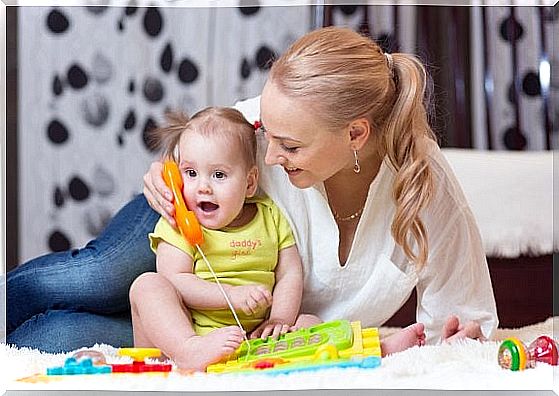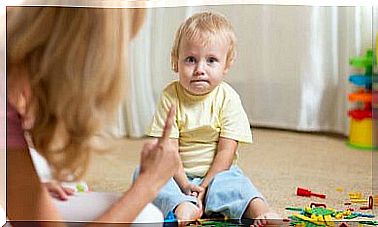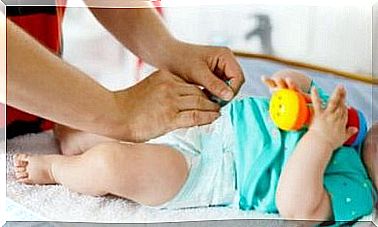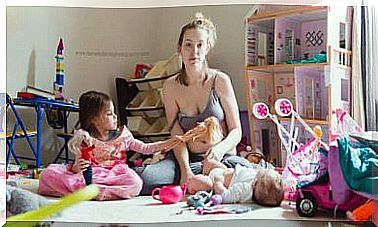Stimulate Your Baby So That It Learns To Speak

Your baby’s first words are unforgettable and especially fascinating. Although it is a completely natural development, there are still ways to stimulate speech . Read on, we’ll show you what to do.
Learning to speak is a long process. The baby first starts with single words, then forms sentences of two to three words in the second year of life or sometimes later, until it then learns to form longer sentences.
You can help him with this process from day one. Then you will find various tips to help your child speak. Do not forget that you should always give due praise to his efforts!
How can you stimulate your baby to learn to speak?
1. Start early
Start talking to your child while they are still your belly-dweller. Even after the birth, it is very important to talk to him a lot. Because his brain picks up all sounds through hearing, which promotes language development. Even if the child does not necessarily understand what you are saying in the first few months, they will be happy to hear your voice and your laughter.
The little one benefits a lot from this, so you should talk to him as much as possible. After all, you play an extremely important role when it comes to your child’s language development. Speak to him correctly so that he can learn to communicate quickly.
2. Read to your child
A story is always a good idea, you should read it to your baby even if he or she doesn’t understand anything yet. It’s not about the child listening intently or understanding the story. But it is an important time together that you can use to develop your baby’s language skills.

Time together is very important! Your little one will hear new words when you talk to them and will quickly get used to the different sounds. All of this stimulates early understanding of conversations. Your baby will soon be moving his lips as if he were speaking and making the first few sounds.
3. Chatter to your baby
If your child starts babbling and babbling, speak the same language with them. Repeat its sounds and rhythm. Imitate it and play with it like that.
Don’t forget that your baby loves getting all of your attention, playing with you, and imitating you. You can also add new sounds to the game that will pique your baby’s interest.
4. Respond to his attempts
If your baby is already a little bigger and can pronounce individual words, you should always answer him with full sentences. If it is only using sounds, answer it with the correct words.
He may not be able to form complete sentences yet and he is still missing the right words, but you are helping him to learn quickly.
5. Repeat the words
Repeating his words will also help him develop his language skills. You can pick up an item and repeat the name several times so that it can make a connection.
Gradually, your child will become more aware of the name of the object and will soon be able to pronounce the word themselves. Babies learn by imitation. The more you repeat the word, the more interested it will be in saying it on its own.
6. Relax and be patient
Small children tend to feel their parents’ worries. This disrupts the environment for good development, because speaking requires courage. Be relaxed and patient, trust in your baby’s natural growth.

Many parents can watch their children’s language skills suddenly explode from one day to the next. However, if you have the feeling that your child is having difficulty understanding speech and is a little slower in language development, you should seek advice from an expert.
However, do not forget that every child has their own times and develops differently. This is also the case when speaking. Always try to use the correct words when talking or singing to your child.
With these tips you can encourage your baby’s speech development and soon hear the first words and sentences.









